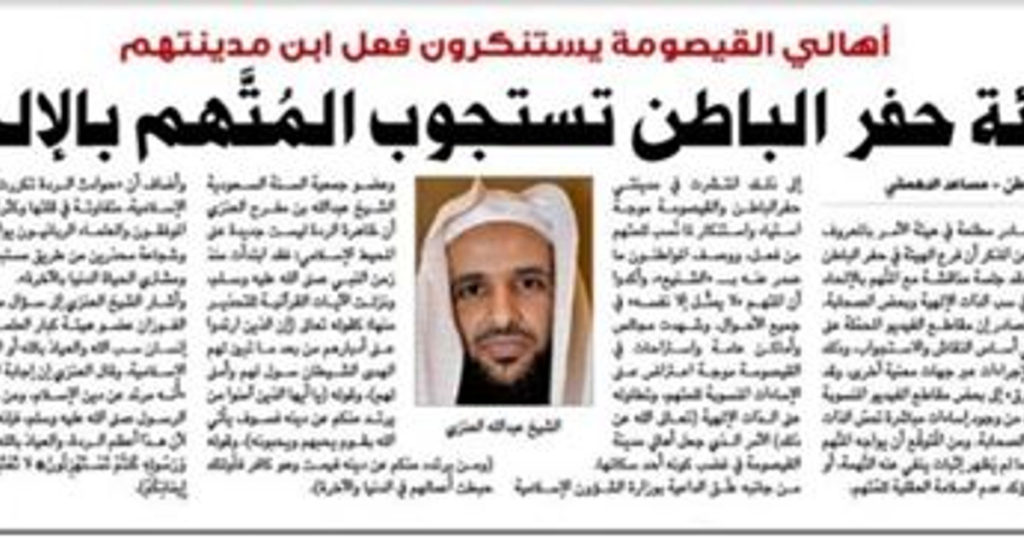29-year-old Ahmad Al Shamri has been sentenced to death after his appeal against charges of ‘atheism and blasphemy’ were denied by the Appeals and Supreme Courts in Saudi Arabia.

Al-Sharq newspaper’s initial report on the arrest of man identified as Ahmad Al Shamri for apostasy and blasphemy in 2014
Al Shamri became known to the Saudi authorities in 2014 when he uploaded a series of videos on social media. He was subsequently arrested on charges of ‘atheism and blasphemy’, and following a trial was sentenced to death on February 2015.
The decision to confirm his sentence sentence was celebrated by many on social media, whilst others criticized the decision:
#مرتد_حفرالباطن in international conferences Saudi Arabia claims to respect all beliefs but today they executed a man for being an apostate pic.twitter.com/B5HE9qwNdi
— Rahaf ♀ (@saudiwtf) April 25, 2017
Al Shamri’s defense focused on the mitigating factors, such as his drug and alcohol use. However the trial has been criticized following reports that crucial mitigating evidence about Al Shamri’s mental health was not taken into consideration on appeal.
Saudi Arabia has come under severe criticism by the International Humanist and Ethical Union (IHEU) for it’s highly restrictive regime where most forms of public expression on religion or belief must be consistent with the government’s particular brand of Sunni Islam, as reported in the IHEU Freedom of Thought Report.
Under the strict religious laws of Saudi Arabia, leaving or converting from Islam (‘apostasy’) is punishable by death, and numerous prisoners of conscience have sentenced to long prison sentences, or corporal punishment. Saudi Arabia’s strict “Salafi” interpretation of Islam was underlined in 2014 when the late King Abdullah passed a series of royal decrees equating atheists with terrorists.
Next month IHEU’s Director of Communications, Bob Churchill, will attend a UN expert meeting on the discriminatory application of the death penalty, where he will raise Al Shamri’s case. Commenting on the news, Mr Churchill said:
Bob Churchill, IHEU Director of Communications and Campaigns
“Once again, this judgement shows how vanishingly little tolerance the Saudi authorities have for difference of opinion, or for freedom of thought. It shows how false is their pretense at respecting human rights. And it shows that the lives of the non-religious are held in contempt and valued as worthless.
“We have seen in countries such as Bangladesh, Pakistan, India and the Maldives the murder of humanists and liberals by extremist gangs. The barbarity is no different when the same punishment is metered out by extremist nation states. By upholding this sentence, Saudi Arabia proves itself an extremist state.
“As an urgent step toward upholding their human rights commitments, we call on the Saudi government to pardon and release Al Shamri, to ensure his protection upon release, and to fundamentally revise these outrageous, inhuman laws.”
